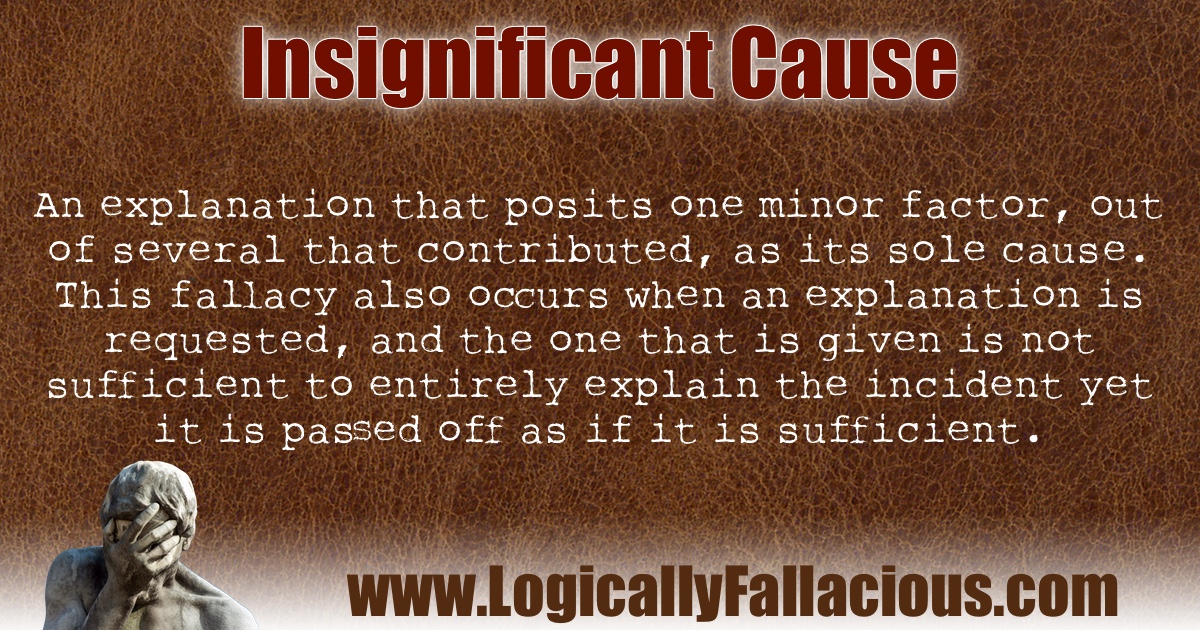(also known as: fallacy of insignificant, genuine but insignificant cause, insufficient cause)
Description: An explanation that posits one minor factor, out of several that contributed, as its sole cause. This fallacy also occurs when an explanation is requested, and the one that is given is not sufficient to entirely explain the incident yet it is passed off as if it is sufficient.
Logical Form:
Factors A, B, and C caused X.
Factor A, the least significant factor, is said to have caused X.
Example #1:
Billy murdered all those people because I spanked him when he was a child.
Explanation: Assuming that spanking did contribute to Billy's murderous behavior as an adult (which is a very weak assumption), to sell that as the cause is extremely fallacious.
Example #2:
The reason Donald Trump got elected was because liberals took political correctness too far.
Explanation: Assuming liberals did take political correctness too far, and this did have some effect on voters in favor of Donald Trump, it is unreasonable to claim that this was "the reason" for his win.
Exception: Very often causes can be “insignificant” in that they don’t seem meaningful enough considering the meaning of the cause. This is one of the prime drivers of the conspiracy theory fallacy. For example, a lone gunman seems like an insignificant cause in the death of John F. Kennedy. This is our bias at work where we want significant causes for significant effects. “Insignificant,” in the context of this fallacy, refers to “insignificant to adequately account for the cause” rather than “insignificant in meaning.”
Tip: Establishing causality is very difficult. Be very weary of claims of causality in casual conversation.

References:
This a logical fallacy frequently used on the Internet. No academic sources could be found.
Questions about this fallacy? Ask our community!